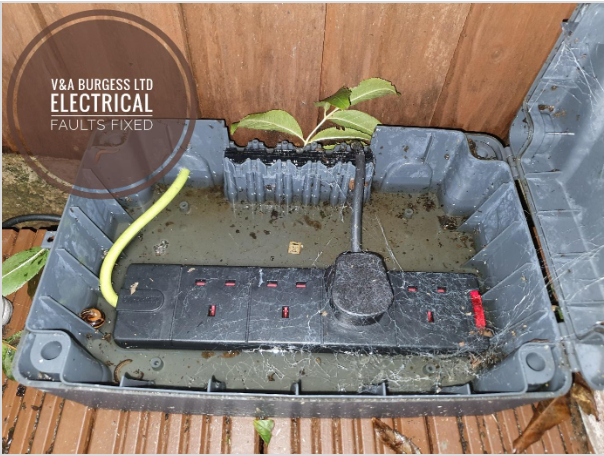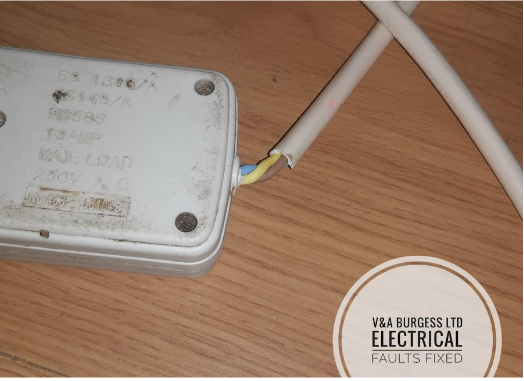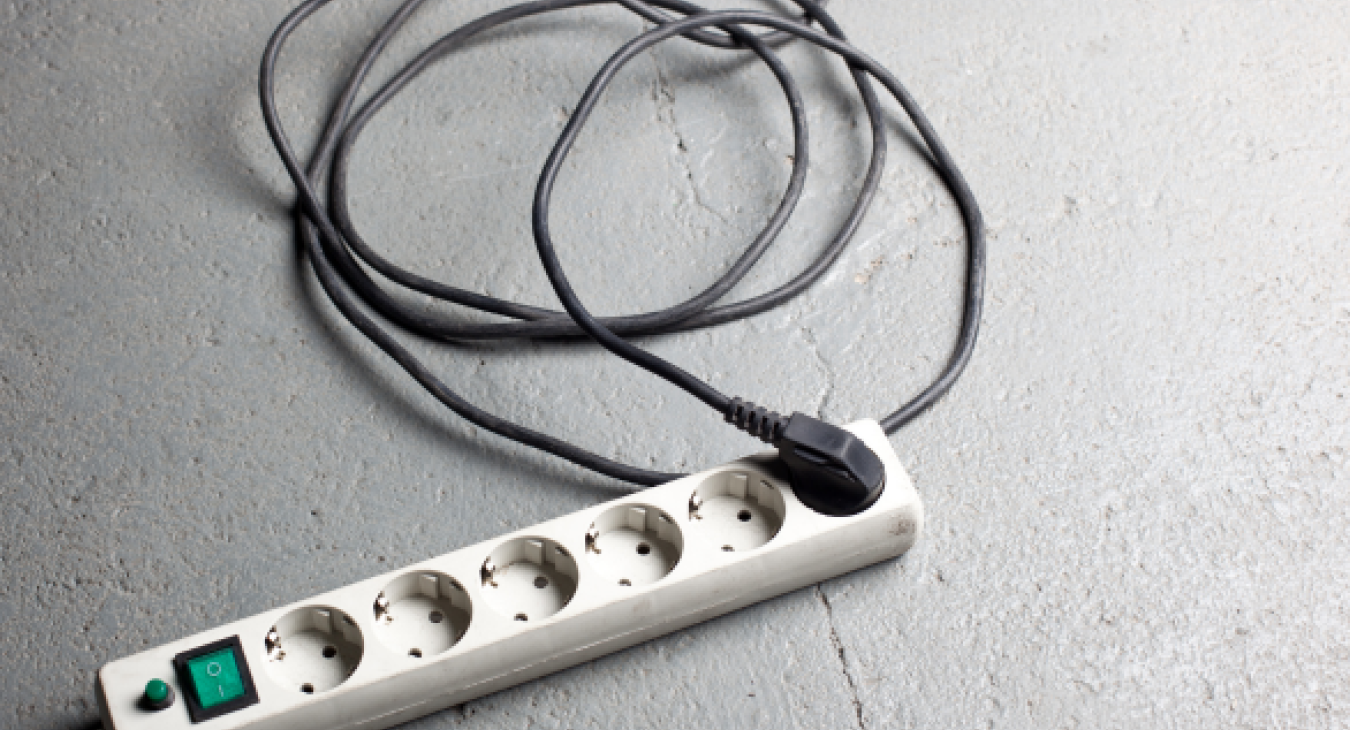Is it safe to run an extension cord outdoors - Electrical Faults Fixed
Table of Contents
- Is it safe to run an extension cord outdoors?
- The Risks of Using Extension Cords Outdoors
- Extension Cords are Temporary Solutions, Not Permanent Fixes
- Identifying the Right Extension Cord for Temporary Outdoor Use
- Better Alternatives for Powering Outbuildings
- Regulations for Safe Outdoor Power: USA and UK
- National Electrical Code (NEC) – USA
- BS 7671 Wiring Regulations – UK
- Safer extension cord alternatives
- Use a Professional Electrician
- Conclusion
1) Is it safe to run an extension cord outdoors?
Providing power to outdoor spaces such as sheds and outbuildings is very useful for tasks involving power tools, outdoor lights, or electrical appliances. However, many homeowners resort to using extension cords for this purpose, which can pose serious safety risks. This article explores the dangers of using extension cords outdoors, highlights safer alternatives, and refers to regulations like the NFPA National Electrical Code (NEC) in the USA and BS 7671 Wiring Regulations in the UK to guide best practices.
Back to top2) The Risks of Using Extension Cords Outdoors
Extension cords are convenient but can be hazardous when used improperly. The following risks are especially pronounced when cords are used outdoors:
1. Fire Hazards
Using an indoor cord outside or overloading a cord can lead to overheating, increasing the risk of electrical fires. According to the U.S. Consumer Product Safety Commission, home fires related to power cords cause hundreds of injuries annually.
2. Electrical Shock Hazards
Outdoor conditions, such as moisture and temperature changes, can compromise a cord's insulation, creating a shock hazard. Fragile wires inside the cord may fray, leading to potential electric shock or short circuits.

3. Unsuitable Cords
Using the wrong type of cord, such as an indoor extension cord, for outdoor tasks is risky. Cords not rated for outside use lack weatherproof insulation, making them unsafe for outdoor conditions.
Back to top3) Extension Cords are Temporary Solutions, Not Permanent Fixes
While extension cords may seem like a good idea for quickly running power to a shed or outbuilding, they are not designed for permanent wiring. Here’s why:
- Wear and Tear: Prolonged exposure to UV rays, rain, or snow can degrade cords, even if they're marked for outdoor use.
- Safety Ratings: An outdoors-use rating doesn’t make a cord immune to damage from prolonged use.
- Limited Capacity: A standard extension cord may not support high-powered appliances like an air conditioner or space heater, increasing the risk of overheating.
4) Identifying the Right Extension Cord for Temporary Outdoor Use
If using an extension cord outdoors is unavoidable, follow these safety tips:
Choose a Heavy-Duty Cord
opt for a heavy-duty cord with a higher amperage rating to handle the load of essential tools or large appliances.
Look for Weatherproof Features
The best outdoor extension cord will have weather-resistant insulation and a grounded three-prong plug.
Use GFCI Outlets
Plug cords into a gfci-equipped outlet or a ground fault circuit interrupter (GFCI) to reduce the risk of electrical shock.
Inspect the Condition of the Extension Cord
Check for damage at the plug end, frayed wires, or visible wear before each use. Damaged cords are a significant electrical hazard.

Replace extension cords when they are showing signs of wear or failure, ask an electrician about installing a permanent power supply correctly to these types of outbuildings and avoid using extension cords where damage may occur in any form.
Back to top5) Better Alternatives for Powering Outbuildings
Using extension cords for long-term power is unsafe. The best option is to install a permanent power supply. Here's how to do it correctly:
Install a Dedicated Circuit
A new electrical circuit ensures adequate power without overloading your home’s electrical system. This circuit should include gfci outlets or RCD protection to prevent shocks in damp environments and to comply with regulations in your area.
Add Additional Outlets
Instead of relying on longer cords, install additional outlets in the shed or outbuilding. This provides safer, localized access to power for outdoor equipment and power tools. Extension cords have a maximum current rating and in the case of reel type leads that are fully wound up, this can be remarkably LOW!
Use Permanent Wiring
Permanent wiring, installed by a professional electrician, eliminates the risks associated with temporary power sources. In the UK, installations must comply with BS 7671, while the NEC governs installations in the USA.
6) Regulations for Safe Outdoor Power: USA and UK
A good understanding of electrical codes and regulations is vital when planning an outdoor project involving electricity. Without sufficient knowledge of safety requirements, danger is likely to exist with any electrical work that is carried out.
Back to top7) National Electrical Code (NEC) – USA
The NEC emphasizes using weatherproof electrical outlets and GFCI outlets for outdoor power. It also requires buried wiring to be protected by PVC pipe or similar conduits to avoid damage.
Back to top8) BS 7671 Wiring Regulations – UK
In the UK, outdoor power installations must comply with BS7671, which mandates proper earthing and the use of safety outlets protected by an RCD device. These installations often require certification by a qualified professional electrician.
Back to top9) Safer extension cord alternatives
Christmas Lights and Decorations
Use cords rated for outdoor conditions and connect them to a GFCI-equipped outlet. Inspect the cord at the end of the cord for fraying or damage.
Outdoor Equipment
For devices like lawnmowers or power tools, ensure the cord has a three-prong plug and sufficient amperage rating.
Electronic Devices
Avoid plugging sensitive electronic devices directly into extension cords. Use a surge protector for added safety.
Air Conditioners and Space Heaters
High-powered devices should be connected to dedicated circuits, not extension cords, to avoid overloading.
10) Use a Professional Electrician
Consulting a professional electrician is vital for safe and reliable outdoor power solutions. They can:
- Install additional outlets in compliance with safety codes.
- Evaluate your home’s electrical system to ensure it can handle the load of new circuits and ensure there are no electrical faults
- Provide recommendations for the best extension cords for temporary needs.
11) Conclusion
While extension cords are convenient for outdoor tasks, they are not a permanent basis solution for powering sheds or outbuildings. Using the right cord, such as a heavy-duty cord with a grounded three-prong plug, can minimize risks, but a more reliable approach is to install permanent wiring. Following regulations like the NEC in the USA and BS 7671 in the UK ensures safe and code-compliant installations. When in doubt, hire a professional electrician to provide expert guidance and installation services.
Safety should always come first when working with electricity, whether for outdoor lights, a bounce house, or power tools. By following these important things and relying on proper power sources, you can complete your outdoor projects safely.
Back to top
Read more articles
- Log in to post comments


